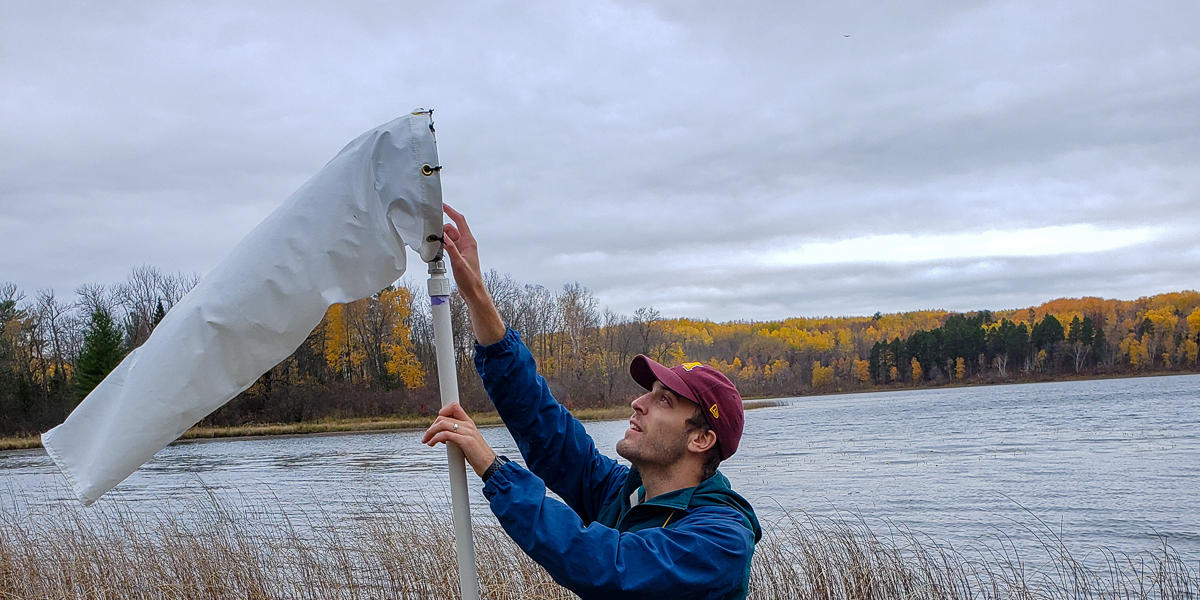
Researcher monitors a wind spore trap
Background
Invasive tree pathogens cause immense damage to natural ecosystems and, in turn, significant economic losses. Minnesota’s natural and urban forests have experienced massive ramifications from the introduction of several exotic pathogens—Dutch elm disease and oak wilt, for example.
A recent, newer threat is Heterobasidion Root Disease (HRD, also called annosum root rot) that has the potential to devastate Minnesota’s pines and other conifers. Many pathogens like HRD spread through windborne spores. Oftentimes windborne pathogens are only detected after being established in an area for some time.
New molecular biosurveillance tools can use DNA technology to help detect forest diseases before they establish. Blanchette’s team is developing such molecular biosurveillance tools for a number of priority invasive pathogens to facilitate early detection of tree diseases across Minnesota.
Research questions
- What is the best way to trap windborne fungal spores for molecular testing?
- What are the best sampling methods for invasive Phytophthora species?
- Where are HRD and other invasive tree diseases detected in Minnesota?
Practical implications
This work will establish a new and effective biosurveillance monitoring program for the early detection of tree diseases in Minnesota. Being able to detect diseases early enables preventative measures to reduce the spread and impact of diseases.
Publications
- Antagonistic interactions between native fungi of Minnesota and the root rot pathogen Heterobasidion irregulare (Forest Pathology, 2023)
- Detecting Heterobasidion irregulare in Minnesota and Assessment of Indigenous Fungi on Pines (Forests, 2021)
Outreach
- Presentation at University of Wisconsin-Madison, 2023
- Presentation at Central Minnesota Christian School, 2023
- University of Wisconsin-Madison Seminar presentation, 2023
- CFANS Research Symposium, 2023
- Plants Get Sick Too, PLPA 1005 - Department of Plant Pathology, 2022
- University of Minnesota Arboretum presentation, 2022
- Pikes Peak Mycological Society, 2022
- North Central Forest Pest Workshop, 2022
- Upper Midwest Invasive Species Conference, 2022
- Minnesota Department of Natural Resources Forest Health Workshop, 2022
News and media
- On the front lines: How proactively pinpointing pathogens protects Minnesota trees (MITPPC, 2023)
- Rooted in Research, MITPPC, 2021
- Fighting for Minnesota’s Trees, UMN Twin Cities News, 2021
- Meet the Researcher: Nick Ratjar
- Meet the Researcher: Benjamin Held